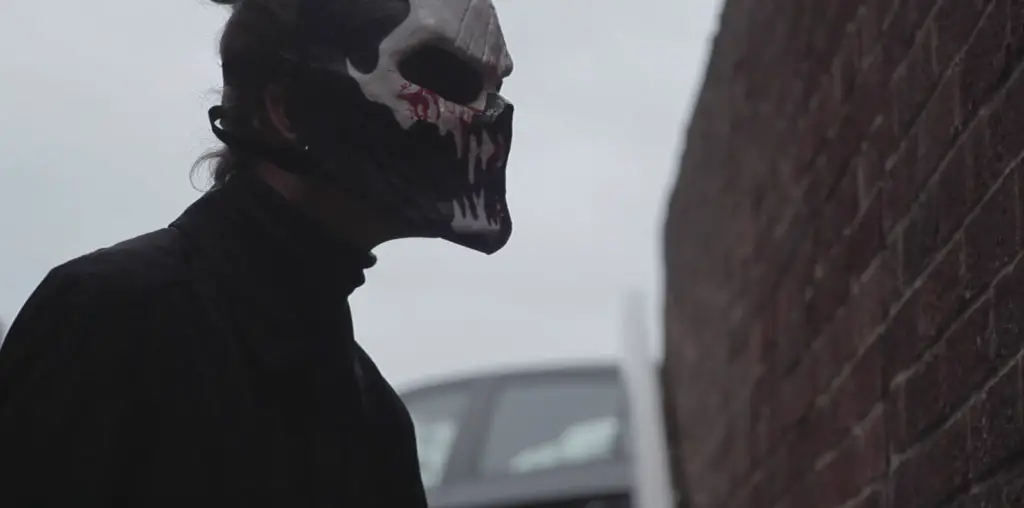
“Observe and Report” may be the smartest dumb comedy since “Harold and Kumar Go To White Castle.” That 2004 comedy classic used its stoner comedy trappings to tell a sharp, incisive tale about modern race relations and ethnic identity. (We’ll ignore the terrible sequel.)
“Observe and Report” begins as simply another story about an underachieving, but big-dreaming little guy who gets a chance to redeem himself and win the girl of his dreams. By the time it is over, we realize that we haven’t just watched a comic variation on “Taxi Driver,” but also a satire of American ambition and nationalistic superiority. In an era where hopes and dreams are being squashed left and right by forces not entirely of our own making, “Observe and Report” comes close to asking us how we began to feel entitled to our uniquely American optimism in the first place.
Ronnie Barnhardt (Seth Rogen, back again) is a mall security guard who dreams of bigger and better things. After a random flasher assaults several women in the parking lot, including the cosmetics employee who occupies Ronnie’s fantasies, this obsessive mall cop sees an opportunity to fulfill his dreams of becoming a police officer. Can Ronnie achieve his dream, as well as win the heart of Melanie at the cosmetics counter? Or will the police catch the flasher first, sounding a death knell for Ronnie’s hopes?
Technically, this is a vast improvement on writer-director Jody Hill’s low-budget, somewhat undisciplined debut feature “The Foot Fist Way,” and he has certainly become one of the most promising comic talents out there. The film is tighter and more organized, despite both films running about 85 minutes. He has genuinely matured as a filmmaker.
While the plot is relatively conventional, the film quickly becomes a dark, psychologically disturbing trip into the mind of a genuine psychotic who believes that he has been put on this Earth to watch over the rest of us. The film will have audiences questioning just how much humor they are supposed to take from this obviously damaged individual, with many a joke being followed by a nervous chuckle. Everyone knows someone like Ronnie, and he’s not very funny in real life.
In a genuinely brave performance, Seth Rogen sheds his frat-boy comic styling and delivers an unflinching portrayal. He refuses to wink at the audience and never subconsciously apologizes for Ronnie’s casual racism and often deplorable behavior. The supporting cast is equally game. Anna Faris is equally daring, delivering a razor-sharp and hilarious put-on of her usual ditzy blonde characters. Faris delivers a “dream girl” who is stupid to the point of being repulsive, without any charm or kindness to offset the sheer nothingness on display. In a offhand way, she ends up becoming a spoof of the “idealized fantasy girl” who appears in so many male coming of age stories (think “Garden State”). Ray Liotta, looking younger and healthier than he has in ages, has a blast playing off his tough-guy persona as the local cop in charge of investigating crime at Ronnie’s mall. Only Michael Pena, as Ronnie’s partner and trusted friend, falters. Pena’s highly cartoonish Spanish accent rings false in a film that strives for a certain authenticity.
While casual audiences can certainly enjoy the film for its bawdy punch lines and quasi-comic violence, there is much underneath the surface. First of all, the film plays as a pretty hard rip on the “empowering” cliches found in so many movies that deal with male fantasy. But the film eventually becomes something deeper and more profound. Like most Americans, Ronnie believes that he is unique, a killer bee amongst the ant colony. By virtue of his birthright, he believes in his own moral superiority as well as his divine right to a greater destiny then that which has been bestowed upon him. The picture is a case study of both a garden-variety delusional thug and the bitter disillusionment of an entire nation. That this stark and uncompromising portrait is able to exist in a genuine comedy is something of a miracle.
Like “The Foot Fist Way,” this is a darkly comic character study of an obsessive, violent underachiever who thinks he’s just a step away from greatness, only to realize that he was always doomed to walk among the masses of “average men.” The film, while flawed (it sometimes moves in fits and starts), is surprisingly unflinching in its vision of a frighteningly common type of person. Moreover, it uses that archetype to paint a portrait of an America slowly coming to terms with the idea that it might not be as special as it thought it was. If Paul Blart is the hero we want in these times of great strife, then maybe Ronnie Barnhardt is the “hero” we’re stuck with.
